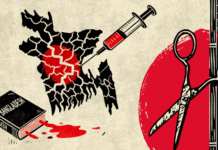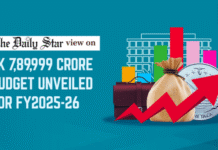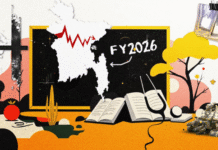
A documentary on Bangladesh, produced and telecast by a Middle East based television channel, seems to have managed to create quite a commotion in Bangladesh lately. Although the government was well aware that the show would be on air on February 1 through the promotions of the documentary on the TV channel, it did not try to block the show in Bangladesh. The authorities can definitely be praised for that decision. It showed faith in our system and confidence that Bangladeshi viewers would be able to make their own judgements and accept or reject the report as they saw fit.
However, soon after the telecast of the show, different agencies of the government and some journalistic bodies started issuing press releases separately. Some of the rejoinders claimed the documentary to be false and baseless. Even conspiracy theories were brought forward against the TV channel, instead of clearing the air with the truth and facts-based counter-narratives.
The latest development in this regard is the High Court directive to the telecom regulator to immediately remove the documentary from online platforms. The court ordered the Bangladesh Telecommunication Regulatory Commission (BTRC) to contact Facebook, Instagram, YouTube and Twitter, if necessary, to remove the report.
People strongly believe that the state, more so the people, are far more powerful than a TV channel. The Bangladesh government could have easily countered the substance of the report through investigations and exposed the weaknesses of the report by revealing the truth. Filtering and blocking the content on the Internet is unlikely to yield any positive results for the state. BTRC could probably be able to block the report on national platforms, but as Facebook, Instagram, YouTube and Twitter are global platforms and they have their own community policies, they can either decline BTRC’s request or carry it out only for Bangladesh. Only time will tell.
According to human rights organisation ARTICLE 19, “the Internet was designed to enable the free flow of information; however, technical measures restricting access to content are now worryingly commonplace in authoritarian and democratic countries alike.”
Many governments are now in breach of their obligations under international human rights law because of their use of blocking/filtering technologies. Much of the world’s online content is now regulated by the community standards and algorithms of a handful of Internet companies, whose operations and processes lack transparency. Internet users’ right to free expression is easily subject to abuse in this regulatory environment, the complexity of which is compounded by the fact that the Internet is a public space built on decentralised private infrastructure.
Companies like Facebook, Twitter and YouTube hold huge influence over our ability to exercise our human rights online, through the application of content rules which determine what can and cannot be shared on their platforms. However, these rules are often vague and broad, and their application is inconsistent and biased. This means a large amount of content is wrongly removed (or wrongly kept online), affecting our right to freedom of expression, and our ability to be part of public debate and speak out on the issues that matter to us. Too often, these wrongful removals affect those already experiencing discrimination and silencing, such as human rights defenders and journalists.
Having informed public and diverse opinions is beneficial to the government. This ensures that the country develops, not only infrastructure wise, but our people also grow and can positively contribute to our society. Free speech and information are fundamental components to the functioning of a democracy, which in turn provides credibility to the government. Thus, democracy and freedom of expression are inextricably linked and are important for ensuring equality, development and non-discrimination.
Faruq Faisel is the South Asia Regional Director of ARTICLE 19, an international organisation working for freedom of expression and the right to know.









